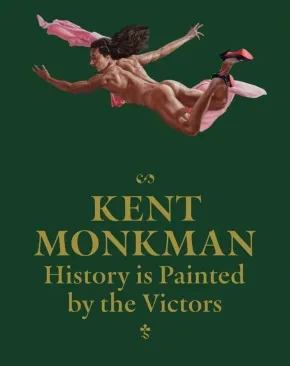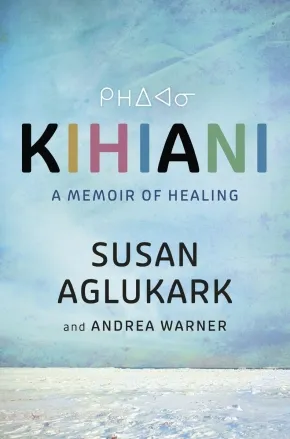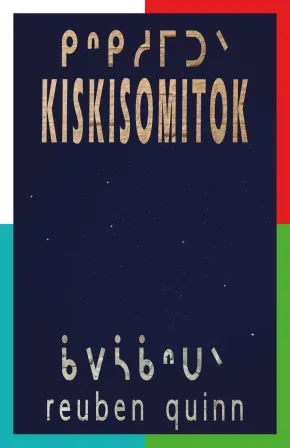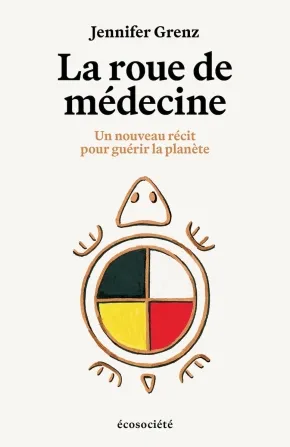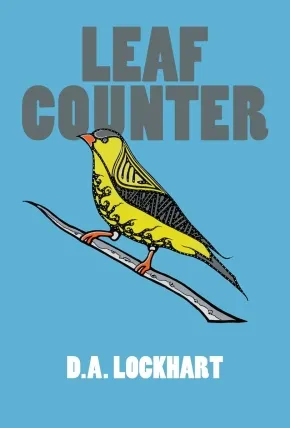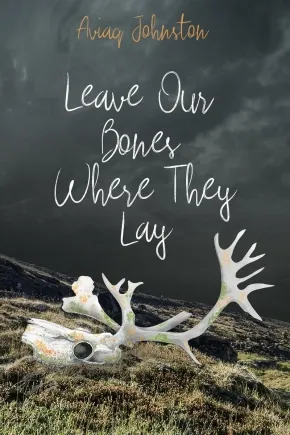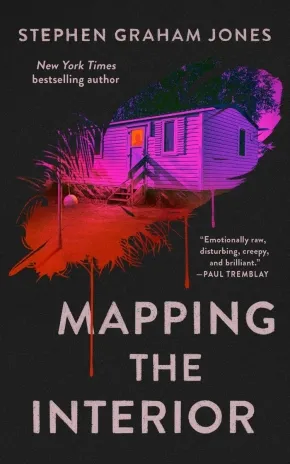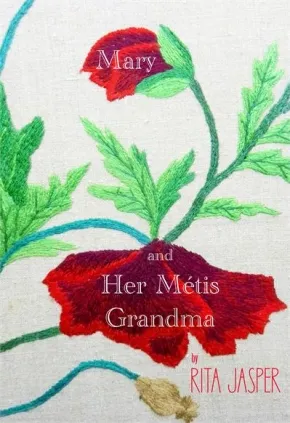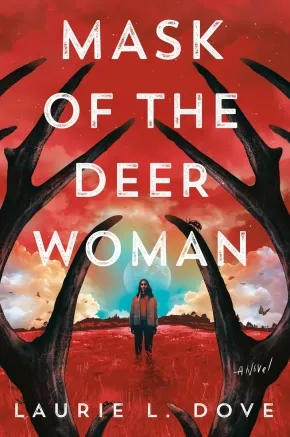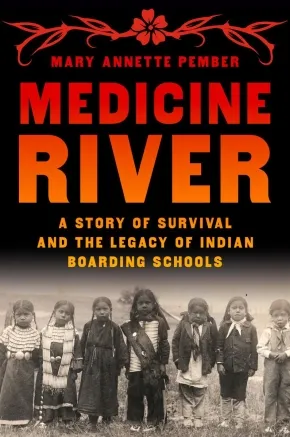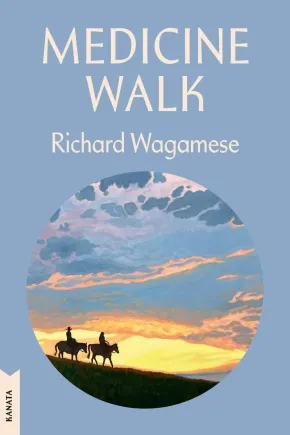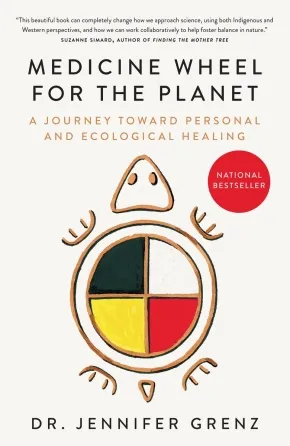
Books
76
-
90
of
1951 Results;
Sort By
Go To
of 131
Just Around the Corner
$26.95
Format:
Paperback
Text Content Territories:
Indigenous Canadian; Inuit;
Reading Level: N/A
ISBN / Barcode: 9781778530357
Synopsis:
Synopsis:
Just Around the Corner is the story of Member of Parliament for Labrador, Yvonne Rumbolt-Jones, a woman from a northern community who broke free of her geographic and political isolation to embrace opportunity.
Just Around the Corner is the story of Member of Parliament for Labrador Yvonne Rumbolt-Jones, a woman from a northern community who broke free of geographic and political isolation to embrace opportunity. An intimate memoir from the longest-serving female politician in Newfoundland and Labrador, Just Around the Corner uncovers Rumbolt-Jones's strength as a survivor as well as her determination and courage through both her private life and her political life. She reveals her early years of dealing with child sexual abuse and experiences with family alcoholism, and her challenges as an adult confronting personal grief and loss, the sexism, public scrutiny, and challenges of party politics, as well as being diagnosed with cancer-twice. Through it all, the thread of Rumbolt-Jones's love for Labrador and its people, and her hope and joy in working for the future of both shines through. She writes with confidence and candour about overcoming adversity and marginality to be elected to both the provincial House of Assembly and the national Parliament, where she has been a strong leader and voice for women, Indigenous peoples, and Canada's North. Her story is that of a woman who refused to let the scars of the past define her, but rather used them to help her grow and understand that while we may not control what harms us, we can control how we move forward.
Additional Information
304 pages | 5.50" x 8.25" | Paperback
Kent Monkman: History is Painted by the Victors
$74.95
Artists:
Editors:
Format:
Hardcover
Text Content Territories:
Indigenous Canadian; First Nations; Cree (Nehiyawak); Fisher River Cree (Ochekwi-Sipi);
Reading Level: N/A
ISBN / Barcode: 9781636811543
Synopsis:
Synopsis:
The renowned Cree artist unmasks a whitewashed, Eurocentric history through provocative paintings full of sexuality and drama
One of Canada’s most renowned artists, interdisciplinary Cree artist Kent Monkman challenges the art historical narrative of settler cultures that colonized First Peoples from North America. He incorporates influences from the canon of European and Euro-American painting, reframing historical, contemporary and speculative future Indigenous experiences. Taking inspiration from Western artists such as George Catlin, as well as from the Old Masters, Monkman’s monumental history paintings feature white colonizers in violent conflict with Indigenous people. The depictions range from early colonial encounters to modern and contemporary clashes between Indigenous communities and uniformed police or clergy. In borrowing the visual language of his oppressors, Monkman reclaims the narrative written by Western art history about the brutalization and cultural genocide carried out against Indigenous North American communities.
History is Painted by the Victors accompanies the artist’s first major exhibition in the United States. The catalog gathers rich analysis of Monkman’s art from prominent scholars, expanding our understanding of his oeuvre and offering new insight via queer theory, historical and contemporary contexts, visual analysis and lived experience.
Kent Monkman was born in 1965 in Ontario, Canada and is a member of Fisher River Cree First Nation in Treaty 5 Territory. Monkman’s works have been exhibited at the Metropolitan Museum of Art, Montreal Museum of Fine Arts, Hayward Gallery, Philbrook Museum of Art, Palais de Tokyo and many more. He is the author of two bestselling novels, The Memoirs of Miss Chief Eagle Testickle, Volumes 1 and 2, which are based on his gender-fluid alter ego who often appears in Monkman’s work as a time-traveling, shape-shifting, supernatural being who reverses the colonial gaze to challenge received notions of history and Indigenous peoples. He lives and works in New York City and Toronto.
This book was published in conjunction with Denver Art Museum; Montreal Museum of Fine Arts.
Additional Information
176 pages | 9.50" x 12.00" | 86 Illustrations | Hardcover
Kihiani: A Memoir of Healing
$36.99
Format:
Hardcover
ISBN / Barcode: 9781443472944
Synopsis:
Synopsis:
Profoundly honest and moving, Kihiani is the uplifting story of an Inuk artist’s journey to healing and self-discovery
Born in Fort Churchill, Manitoba, but raised in Arviat, a predominantly Inuit community on the western edges of Hudson Bay, Susan and her six siblings grew up in a humble but loving home. But while living in Rankin Inlet, when she was eight years old, Susan’s life was disrupted by a life-changing event, a distinct separation that created a schism inside her for many years and from which she continues to heal.
At fifteen, she started writing poems that spilled out of her, and when Susan had the choice to leave her community, she grabbed it like a lifeline. Eventually, Susan was approached by a producer at CBC who was making a compilation album of Arctic artists and years later signed with a major label for her third album, This Child.
The disruption and milestones, the turmoil and joy, the devastation and healing—this is Susan Aglukark’s story of discovering her Inuk self.
Additional Information
272 pages | 6.00" x 9.00" | Hardcover
kiskisomitok ᑭᐢᑭᓱᒥᑐᐠ
$19.95
Format:
Paperback
Reading Level: N/A
ISBN / Barcode: 9781772016444
Synopsis:
Synopsis:
In ᑭᐢᑭᓱᒥᑐᐠ kiskisomitok: ᓀᐦᐃᔭᐤ to remind each and one other, nêhîyaw educator ᑳᐯᓵᑳᐢᑌᐠ reuben quinn uses the spirit marker writing system as a foundation for teaching ᓀᐦᐃᔭᐁᐧᐃᐧᐣ nêhîyawewin. The spirit marker writing system holds forty-four spirit markers and fourteen minor spirit markers. Some people call that system the star chart. Each spirit marker holds a law. These laws are meant to guide us in ways that support us in life. They are meant to guide us in ways of living well with the elements: fire, land, water, and air. The spirit markers remind us that these elements form the foundations of all relationships on earth.
Educator Information
In ᑭᐢᑭᓱᒥᑐᐠ kiskisomitok: ᓀᐦᐃᔭᐤ, reuben quinn uses the spirit marker writing system as a foundation for teaching ᓀᐦᐃᔭᐁᐧᐃᐧᐣ nêhîyawewin.
Additional Information
96 pages | 5.51" x 8.50" | Paperback
La rafle des années 1960: et enfance volée aux jeunes Autochtones
$45.00
Format:
Paperback
Text Content Territories:
Indigenous Canadian;
ISBN / Barcode: 9781459419902
Synopsis:
Synopsis:
The award-winning Righting Canada's Wrongs series is now available in French for Immersion classrooms!
Starting in 1951, Indigenous children in Canada were taken by social welfare agencies from their families and placed in the care of non-Indigenous families. These children grew up without their birth families, cultural roots, and language. Many tried to run away and some died in the attempt. The taking of the children is known as the Sixties Scoop, though the policies and practices started before the 1960s and lasted long after. Today, Indigenous children are shockingly over-represented in the child welfare system across Canada.
Indigenous communities organized and fought back for their children. In 1985, an official government report condemned the practice.
In the 1990s, lawsuits were filed against the governments who had supported taking the children. In 2018 and 2019, Alberta, Saskatchewan and Manitoba apologized for their roles. In 2020, the Canadian government agreed to a settlement for survivors of the Scoop.
Through hundreds of photos and primary documents, readers meet many survivors of the Scoop. They learn how Indigenous communities fought back to save their children and won, and how Indigenous communities across Canada are working towards healing today.
Reviews
“The Sixties Scoop and the Stolen Lives of Indigenous Children embraces complexity in the history it tells, which is further enhanced by the inclusion of first-hand accounts from survivors of the Scoop. Their stories provide a plurality of experiences, adding additional nuance to the book… It is timely and well-researched, an excellent resource for teachers, librarians, and parents interested in educating young people about the harms these policies had – and continue to have – on Indigenous communities, as well as the continued overrepresentation of Indigenous children in care.” — Quill & Quire
Educator & Series Information
Recommended for ages 13 to 18.
This French book is part of the series Redresser les torts du Canada (Righting Canada's Wrongs series in French).
This book is available in English: Righting Canada's Wrongs: The Sixties Scoop and the Stolen Lives of Indigenous Children
This title is included in the Indigenous Books for Schools database from the Association of Book Publishers of BC as a recommended resource for Grades 10 to 12 for Family Studies, Social Studies, and Career Education.
Additional Information
8.50" x 11.69" | 300 Photographs | Paperback
La roue de médecine: Un nouveau récit pour guérir la planète
$29.00
Format:
Paperback
Text Content Territories:
Indigenous Canadian; First Nations; Salish; Interior Salish; Nlaka'pamux (Thompson);
Reading Level: N/A
ISBN / Barcode: 9782898570674
Synopsis:
Synopsis:
Le récit inspirant d’une chercheuse et écologiste autochtone qui a cherché à réconcilier sa tête (science occidentale) et son cœur (vision du monde indigène) pour trouver une voie plus juste vers la guérison écologique.La roue de médecine raconte le voyage de réconciliation personnelle et écologique vécu par la chercheuse autochtone Jennifer Grenz dans son travail sur la restauration écologique. Elle montre qu’il est possible de créer des ponts entre les savoirs autochtones et occidentaux sans tomber, pour les populations autochtones elles-mêmes, dans le piège de l’assimilation par l’inclusion. Un récit qui démontre qu’il n’est pas nécessaire de se couper de ses valeurs, de sa spiritualité, de sa vie relationnelle et de son engagement envers la communauté, mais qu’on gagne au contraire à les placer au cœur de son métier. Éloquent, inspirant et dérangeant, ce bestseller enfin traduit en français jette les bases d’une écologie autochtone et nous rappelle qu’une multiplicité de visions du monde est nécessaire pour sauvegarder notre planète.
Educator Information
This book is available in English: Medicine Wheel for the Planet: A Journey toward Personal and Ecological Healing
Additional Information
Paperback
Leaf Counter
$24.95
Format:
Paperback
Text Content Territories:
Indigenous Canadian; First Nations; Lenape (Delaware);
Reading Level: N/A
ISBN / Barcode: 9781997580034
Synopsis:
Synopsis:
Flow into a new season in one of Canada’s most celebrated literary landscapes, with Leaf Counter. A lyric decolonial romp through the Ontario’s famed Prince Edward County, Aginjibagwesi (Spinus tristis) draws us through the poetics of the land and the struggles of the poet as decolonizer in this new epic border-crossing collection. Golden witness to the timelessness of land and spirits, Leaf Counter criss-crossed the lands around Ameliasburgh, its ghosts, heroes, and even the poets of Purdy’s A-Frame. Leaf Counter knows of sorrow, struggle, and wends a tale in a braided narrative as he scans "light and steeple” and sees timeless men at the centre and edges of the order of things, Simon Girty, Al Purdy, Charles Bukowski, and even Bret Hart, move and shift in time and place. Leaf Counter is our celestial, Lenape, winged guide of legend and myth. And through his spring enumeration of all things, we garner an understanding of the famed Canadian poet Al Purdy and the lands that he grew from. Witness the collapse of the old repressive order through the eyes of the poet and movements of the mighty little bird.
Additional Information
148 pages | 6.00" x 9.00" | Paperback
Leave Our Bones Where They Lay
$19.95
Format:
Paperback
Text Content Territories:
Indigenous Canadian; Inuit;
Reading Level: N/A
ISBN / Barcode: 9781772275896
Synopsis:
Synopsis:
Every solstice, Jupi—just as his father did before him, and his before him—must make a nearly impossible pilgrimage to light an oil lamp at the base of a remote cliff. There he must wait for Kipik, an ancient being who has bound Jupi’s family to a mammoth task: share a story every visit that appeases the fickle Kipik, or suffer unthinkable consequences.
For decades, Jupi has made the trek, growing grey and exhausted carrying this burden. Nearing the end of his life, Jupi knows he must name a successor, someone from his bloodline who can carry this weight and pass it on to future generations. But Jupi’s life has not been easy. His three children, one deceased, one incarcerated, one addicted, are not suitable successors. So Jupi must connect with a granddaughter he barely knows, whose language he barely speaks, and convince her to carry the weight of their family, perhaps their whole community, for the rest of her life.
This moving collection explores shifting definitions of what it means to be accountable to others, how family and community are defined, and how the spirits and demons of the past (both personal and legendary) are very much alive today.
Additional Information
136 pages | 6.00" x 9.00" | b&w illustrations | Paperback
Love Is a War Song
$25.99
Format:
Paperback
Text Content Territories:
Indigenous American; Native American; Muscogee (Creek);
Reading Level: N/A
ISBN / Barcode: 9780593642627
Synopsis:
Synopsis:
A Muscogee pop star and a cowboy who couldn’t be more different come together to strike a deal in this new romantic comedy by Danica Nava, USA Today bestselling author of The Truth According to Ember.
Pop singer Avery Fox has become a national joke after posing scantily clad on the cover of Rolling Stone in a feather warbonnet. What was meant to be a statement of her success as a Native American singer has turned her into a social pariah and dubbed her a fake. With threats coming from every direction and her career at a standstill, she escapes to her estranged grandmother Lottie’s ranch in Oklahoma. Living on the rez is new to Avery—not only does she have to work in the blazing summer heat to earn her keep, but the man who runs Lottie’s horse ranch despises her and wants her gone.
Red Fox Ranch has been home to Lucas Iron Eyes since he was sixteen years old. He has lived by three rules to keep himself out of trouble: 1) preserve the culture, 2) respect the horses, and 3) stick to himself. When he is tasked with picking up Lottie’s granddaughter at the bus station, the last person he expected to see is the Avery Fox. Lucas can’t stand what she represents, but when he’s forced to work with her on the ranch, he can’t get her out of his sight—or his head. He reminds himself to keep to his rules, especially after he finds out the ranch is under threat of being shut down.
It’s clear Avery doesn’t belong here, but they form a tentative truce and make a deal: Avery will help raise funds to save the ranch, and in exchange, Lucas will show her what it really means to be an Indian. It’s purely transactional, absolutely no horsing around…but where’s the fun in that?
Reviews
"Artfully crafted and bursting with tension, Avery and Lucas’ story hits every beat with intention and ease. Nava delivers a sharp, funny, and deliciously slow-burning romance about two people learning to carve out their own space in the world. Love is a War Song is the book of the summer!”—Lyla Sage, New York Times bestselling author of Swift and Saddled
“A swoony love story that deftly explores identity, redemption, and the complexities of cancel culture. Danica Nava's sophomore novel is as thought provoking as it is funny and heart melting. It's a must read for all romance book lovers.”—Hannah Grace, #1 New York Times bestselling author of Daydream
"I devoured this within hours. I absolutely loved every page and how Avery overcame her struggles. My kingdom for Lucas. He was the most swoony MMC. The ending was so emotional and I was holding back tears. Sweet and sexy in the perfect package."—Nisha J Tuli, international bestselling author of Trial of the Sun Queen and Not Safe for Work
"Hilarious, sexy, and oh so addictive, Love is a War Song delivers the country-pop star mashup romance readers have been desperately waiting for! Danica Nava’s razor sharp wit and gift for storytelling never fail to make me laugh and swoon. Thanks to Danica Nava, I’m officially in my cowboy romance reading era, and I never want to leave! Between the dreamy western backdrop and pitch perfect enemies to lovers banter, Love is a War Song is a must read for fans of genre staples like Lyla Sage and Rebekah Weatherspoon."—Ellie Palmer, author of Four Weekends and a Funeral
“Danica Nava’s Love is A War Song is an at times hilarious yet moving story of redemption, love, and the importance of family and community. Fish out of water is one of my favorite tropes to read, and Nava executed it perfectly. I can’t wait to read what she writes next!”—Kristina Forest, USA Today bestselling author of The Love Lyric
Additional Information
336 pages | 5.18" x 8.00" | Paperback
Mapping the Interior
$18.99
Format:
Paperback
Text Content Territories:
Indigenous American; Native American;
Reading Level: N/A
ISBN / Barcode: 9781250406026
Synopsis:
Synopsis:
Times have been tough for twelve-year-old Junior, his mom, and especially for his younger brother Dino. When his dad makes a surprise visit late one night, Junior is desperate to make him part of their family again. The only problem is Dad drowned eight years ago.
And bringing back the dead always comes at a cost…
Reviews
"Jones’s neat little horror novella balances an energetic narrative with larger explorations of the inescapable burdens of family ties...Wonderfully refreshing and not to be missed."—Publishers Weekly
"Mapping the Interior is thus a masterful critique of time, place, and memory in (post/de)colonial contexts that surfaces questions urgent for Native literature, horror fiction, and American history."—World Literature Today
Additional Information
112 pages | 5.25" x 8.25" | Paperback
Mary and her Métis Grandma
$24.95
Format:
Paperback
Text Content Territories:
Indigenous Canadian; Métis;
Reading Level: N/A
ISBN / Barcode: 9781998779895
Synopsis:
Synopsis:
A gripping work of auto-fiction / biography and memoir resulting in historical accountability. Divided into two parts; starting at the turn of the 20th century leading into the 1980's.
Filled with wisdom, grit and honesty, this is the journey of a Métis teenager overcoming personal grief, witnessing the pain of others, and experiencing the healing power of a Grandma’s love.
At times harrowing and instead of succumbing to self-pity Mary will rise above her presumed narrative with courage and love as her Grandma takes Mary under her wing to guide her into the mature woman she will become.
Educator Information
To learn more about this work, such as how the duck character and situation were developed, visit the author's website: https://ritajasperart.com/2025/10/14/the-bus-ride-was-just-ducky/.
Additional Information
250 pages | 5.50" x 8.50" | Paperback
Mask of the Deer Woman
$39.00
Format:
Hardcover
Text Content Territories:
Indigenous American; Native American;
Reading Level: N/A
ISBN / Barcode: 9780593816103
Synopsis:
Synopsis:
To find a missing young woman, the new tribal marshal must also find herself.
At rock bottom following her daughter’s death, ex–Chicago detective Carrie Starr has nowhere to go but back to her roots. Starr’s father never talked much about the reservation where he was raised, but the tribe needs a new marshal as much as Starr needs a place to call home.
In the past decade, too many young women have disappeared from the rez. Some have ended up dead, others just…gone. Now local college student Chenoa Cloud is missing, and Starr falls into an investigation that leaves her drowning in memories of her daughter—the girl she failed to save.
Starr feels lost in this place she thought would welcome her. And when she catches a glimpse of a figure from her father’s stories, with the body of a woman and the antlers of a deer, Starr can’t shake the feeling that the fearsome spirit is watching her, following her.
What she doesn’t know is whether Deer Woman is here to guide her or to seek vengeance for the lost daughters that Starr can never bring home.
Reviews
"Mask of the Deer Woman shines an important spotlight on the Missing and Murdered Indigenous Women crisis while folding a compelling mystery into a heartfelt journey of grief, identity, and reconnection." —Vanessa Lillie, USA Today bestselling author of Blood Sisters
“A beautifully written tale about the Indigenous girls who disappear twice, once in life and once in the news. Clever, elegant and utterly compelling, Mask of the Deer Woman is a brilliant exploration of identity and the struggle of being separated from one’s culture. Hypnotic and beguiling, I was hooked from the first sentence.”—Christina McDonald, USA Today bestselling author of These Still Black Waters
"A thriller that dreams are made of—thoroughly engrossing, riveting, an absolute pleasure. The work of a rare, singular talent."—Chris Mooney, #1 New York Times bestselling coauthor of Walk in My Combat Boots
“Spotlighting the real life crisis of Native women and girls who are abducted and murdered at an astonishing rate, Laurie L. Dove presents a vital story of danger, corruption, and a fraying thread of hope in Indian Country. Full of mystery, suspense, and an enthralling dose of Native mythology, Mask of the Deer Woman is both a propulsive thriller and a much-needed call to action."—Nick Medina, author of Indian Burial Ground
“Laurie Dove masterfully tells a suspenseful story with a complex protagonist who straddles the worlds between the living and the dead and her dual heritages. A compelling read.”—Iris Yamashita, author of City Under One Roof
“Mask of the Deer Woman is a creepy, atmospheric page-turner and a thoughtful exploration of identity and belonging. Dove's detailed descriptions plunge the reader into the world of an Oklahoma reservation and its troubled inhabitants. Above all, this immersive debut is an ode to women's resilience and the powerful bonds between mothers and daughters."—K.T. Nguyen, author of You Know What You Did
Additional Information
336 pages | 6.00" x 9.00" | Hardcover
Medicine River: A Story of Survival and the Legacy of Indian Boarding Schools
$39.00
Format:
Hardcover
Text Content Territories:
Indigenous American; Native American; Anishinaabeg; Ojibwe (Chippewa); Red Cliff Band of Lake Superior Chippewa;
ISBN / Barcode: 9780553387315
Synopsis:
Synopsis:
A sweeping and trenchant exploration of the history of Native American boarding schools in the United States, and the legacy of abuse wrought by them in an attempt to destroy Native culture and life.
From the mid-nineteenth century to the late 1930s, tens of thousands of Native children were pulled from their tribal communities to attend boarding schools whose stated aim was to "save the Indian" by way of assimilation. In reality, these boarding schools—sponsored by the U.S. government, but often run by various religious orders with little to no regulation—were a calculated attempt to dismantle tribes by pulling apart Native families. Children were beaten for speaking their Native languages; denied food, clothing, and comfort; and forced to work menial jobs in terrible conditions, all while utterly deprived of love and affection.
Amongst those thousands of children was Ojibwe journalist Mary Pember's mother, who was was sent to a boarding school in northern Wisconsin at age five. The trauma of her experience cast a pall over Pember's own childhood and her relationship with her mother. Highlighting both her mother's experience and the experiences of countless other students at such schools, their families, and their children, Medicine River paints a stark but hopeful portrait of communities still reckoning with the trauma of acculturation, religion, and abuse caused by the state. Through searing interviews and careful reporting, Pember traces the evolution and continued rebirth of Native cultures and nations in relation to the country that has been intent on eradicating them.
Reviews
“A devastating history. . . . Weaving into her narrative her own mother’s experiences . . . Pember explores the psychological ramifications the schools had on subsequent generations. She comes to many quietly ruinous insights about the emotional neglect she herself suffered at the hands of her wounded mother. . . . Concluding with a searing call for accountability, this strikes a chord.” —Publishers Weekly, starred review
“[Pember’s] extensive research illuminates the attempted cultural erasure by government and religious institutions. Her mother’s story provides a heartbreaking, personal focus.” —Booklist
“Elegantly weaving together her mother’s stories, those of other boarding school students, and concise accounts of federal assimilationist policies and common institutional practices, [Pember] provides an informed and unsettling perspective on the schools’ individual and collective impact. . . . A gripping, often harrowing account of the personal and communal toll of cultural genocide.”—Kirkus
"Mary Annette Pember has left it all on the line. Through her, her Ojibwe ancestors speak boldly about how the US government has treated them and every Indigenous nation in these so-called-United States. I have never read a book that has changed me so profoundly. Pember not only points to what has been done, but also offers a way forward. Everyone, absolutely everyone, should read this book." —Javier Zamora, author of Solito
“So much writing about historical trauma casts a vague, impenetrable cloud over its subjects’ lives. But with electric precision and rigorous care, Mary Annette Pember pierces through, illuminating the real mechanisms by which pain has accumulated and reverberated through generations of boarding school survivors and their descendants, as well all the beauty, love, and humor these same lives contain. In showing us how trauma is made, Pember helps us see that it can be unmade. ‘History flows through us,’ she writes, and nowhere has this idea been so well rendered as here, in this stunning, essential book.”—Sierra Crane Murdoch, author of Yellow Bird: Oil, Murder, and a Woman's Search for Justice in Indian Country
“Pember has written a searing exploration of the multi-generational trauma visited upon Native people by the boarding school experience, as well as a brilliant account of Indigenous survivance.” —Michael Witgen, Red Cliff Band of Lake Superior Ojibwe, author of Seeing Red
"I have a shelf full of books on the Indian boarding schools, but nothing quite like this one. Anyone who questions why the U.S. government has finally apologized for these schools and for its brutal assaults on Native children and their families should read Medicine River." —Colin G. Calloway, Professor of History and Native American Studies, Dartmouth College
"Mary Annette Pember reveals that the trauma and rage of surviving the St. Mary’s Catholic Indian Boarding School permeates through the generations. Pember has chronicled a deeply personal and first-person account of the dark legacy of incarceration at a ‘civilized’ boarding school and how the trauma of those youngsters impact their living descendants. Pember tells us that resistance and accountability is attainable, and I believe her. This is an essential read."—Devon Mihesuah, Choctaw Nation of Oklahoma, author of The Bone Picker
"A dauntless and visceral excavation of one family’s residential boarding school legacy. In Medicine River, we can see pain ripple through generations, eclipsed only by Mary Annette Pember's courage and her conviction that, in the search for answers, we can heal."—Anton Treuer, author of Where Wolves Don't Die
Additional Information
304 pages | 6.42" x 9.55" | Hardcover
Medicine Walk: Kanata Classics Edition
$22.00
Format:
Paperback
Text Content Territories:
Indigenous Canadian; First Nations; Anishinaabeg; Ojibway;
ISBN / Barcode: 9780771023521
Synopsis:
Synopsis:
By the celebrated author of Canada Reads Finalist Indian Horse, a stunning new novel that has all the timeless qualities of a classic, as it tells the universal story of a father/son struggle in a fresh, utterly memorable way, set in dramatic landscape of the BC Interior. For male and female readers equally, for readers of Cormac McCarthy, Thomas King, Russell Banks, and general literary.
Franklin Starlight is called to visit his father, Eldon. He's sixteen years old and has had the most fleeting of relationships with the man. The rare moments they've shared haunt and trouble Frank, but he answers the call, a son's duty to a father. He finds Eldon decimated after years of drinking, dying of liver failure in a small town flophouse. Eldon asks his son to take him into the mountains, so he may be buried in the traditional Ojibway manner.
What ensues is a journey through the rugged and beautiful backcountry, and a journey into the past, as the two men push forward to Eldon's end. From a poverty-stricken childhood, to the Korean War, and later the derelict houses of mill towns, Eldon relates both the desolate moments of his life and a time of redemption and love and in doing so offers Frank a history he has never known, the father he has never had, and a connection to himself he never expected.
A novel about love, friendship, courage, and the idea that the land has within it powers of healing, Medicine Walk reveals the ultimate goodness of its characters and offers a deeply moving and redemptive conclusion.
Wagamese's writing soars and his insight and compassion are matched by his gift of communicating these to the reader.
Reviews
“In Medicine Walk, Wagamese manages the nuances of betrayal and redemption with uncommon artistry. It is a breathtaking novel of sorrow, hope and polished steel.” – Thomas King
“A deeply felt and profoundly moving novel, written in the kind of sure, clear prose that brings to mind the work of the great North American masters; Steinbeck among them. But Wagamese's voice and vision are also completely his own, as is the important and powerful story he has to tell.” – Jane Urquhart
“Medicine Walk recounts the mythic journey of an estranged father and son who are searching for reconciliation and love. Richard Wagamese’s novel renders the Canadian wilderness with staggering insight and beauty. The same can be said for his understanding of the fragility, wildness and resilience of the human heart. Magnificent.” – Lisa Moore
“Medicine Walk is a masterpiece, a work of art that explores human interconnectedness with a level of artistry so superb that the personal becomes eternal.” – National Post
“A moving story…. Wagamese balances the novel’s spiritual and political subtexts with sly humour, sharp, believable dialogue and superb storytelling skills. Medicine Walk is a major accomplishment from an author who has become one of Canada’s best novelists.” – Toronto Star
“This is very much a novel about the role of stories in our lives, those we tell ourselves about ourselves and those we agree to live by…. Wagamese understands that the stories we don’t tell are as important as the ones we do….But Medicine Walk is also testament to the redemptive power of love and compassion.” – Globe and Mail
“One of the finest novels of the year…. Medicine Walk is not only a graceful book, it is a novel of grace, of coming to terms with hidden truths, of coming to know the secrets behind forbidding appearances, of finding the humanity within strangers.” – Vancouver Sun
“An essential read…. Superbly written.” – Now Magazine (NNNN)
Educator & Series Information
This edition of Medicine Walk is part of the Kanata Classics series, which celebrates timeless books that reflect the rich and diverse range of voices in Canadian literature.
Grades 10-12 BC English First Peoples resource for units on Childhood, Place-Conscious Learning, and Family.
Additional Information
256 pages | 5.50" x 8.25" | Paperback
Medicine Wheel for the Planet: A Journey toward Personal and Ecological Healing (PB)
$23.00
Format:
Paperback
Text Content Territories:
Indigenous Canadian; First Nations; Salish; Interior Salish; Nlaka'pamux (Thompson);
Reading Level: N/A
ISBN / Barcode: 9781039006034
Synopsis:
Synopsis:
"This beautiful book can completely change how we approach science, using both Indigenous and Western perspectives, and how we can work collaboratively to help foster balance in nature." —Suzanne Simard, bestselling author of Finding the Mother Tree
For readers of Braiding Sweetgrass: Future-saving insights and approaches to science and ecology using both Indigenous and Western perspectives.
A farm kid at heart, and a Nlaka'pamux woman of mixed ancestry, Dr. Jennifer Grenz always felt a deep connection to the land. However, after nearly two decades of working as a restoration ecologist in the Pacific Northwest, she became frustrated that despite the best efforts of her colleagues and numerous volunteers, they weren't making the meaningful change needed for plant, animal and human communities to adapt to a warming climate. Restoration ecology is grounded in an idea that we must return the natural world to an untouched, pristine state, placing humans in a godlike role—a notion at odds with Indigenous histories of purposeful, reciprocal interaction with the environment. This disconnect sent Dr. Grenz on a personal journey of joining her head (Western science) and her heart (Indigenous worldview) to find a truer path toward ecological healing.
In Medicine Wheel for the Planet, building on sacred stories, field observations and her own journey, Dr. Grenz invites readers to share in the teachings of the four directions of the medicine wheel: the North, which draws upon the knowledge and wisdom of elders; the East, where we let go of colonial narratives and see with fresh eyes; the South, where we apply new-old worldviews to envision a way forward; and the West, where a relational approach to land reconciliation is realized.
Eloquent, inspiring and disruptive, Medicine Wheel for the Planet circles toward an argument that we need more than a singular worldview to protect the planet and make the significant changes we are running out of time for.
Reviews
"Grenz shares her ancestral Nlaka'pamux wisdom that respect, relationship and reciprocity with all life is essential in healing the land. In telling her stories, she demonstrates how these fundamental principles underlie the good work. She also teaches us that our ability to understand nature and our success at stewardship requires that we lead with our hearts and keep our beginner’s curiosity open. When we do this, we have unlimited capacity to heal. This beautiful book can completely change how we approach science, using both Indigenous and Western perspectives, and how we can work collaboratively to help foster balance in nature.” —Suzanne Simard, author of Finding the Mother Tree: Discovering the Wisdom of the Forest
“Rooted in both Indigenous and Western ways of understanding and doing science, Medicine Wheel for the Planet challenges the simplistic, dichotomous thinking that has led well-meaning environmentalists astray for too long. In a book that is part primer in ecology, part memoir, and part manifesto, Jennifer Grenz movingly shares her own process of learning and unlearning, of connecting with traditional knowledge and practices to help unearth future-saving insights and approaches — and by doing so, generously invites the reader to undertake a similar transformation. Wise, humble, provocative, brave, and beautifully written, this book is a triumph. Read it and let it alter and expand how you see the world and your place and role within it." —Astra Taylor, author of The Age of Insecurity: Coming Together as Things Fall Apart
“Deeply moving and compelling, Medicine Wheel for the Planet weaves a powerful story about the limitations of restoration ecology and a Western lens, and illuminates a path forward using the power of Indigenous and reciprocal ways of being. An imperative read for all Canadians.” —Angela Sterritt, author of Unbroken: My Fight for Survival, Hope, and Justice for Indigenous Women and Girls
“In this thoughtful and heartfelt book, Dr. Grenz challenges us to reflect on how – despite the massive contributions of Western science – we humans are impacting the Earth and all life on our planet in problematic ways, most recently evident in the ongoing global climate crisis. Guiding us through the medicine wheel concept, she illuminates the deep experiences of the First Peoples, often conveyed through stories, that can inspire us to be better relatives, reminding us to focus our time and energy on healing the Earth. This is a revelatory, immersive work that illustrates, with respect and gratitude, the meaningful role that all systems of knowledge play in connecting ‘our heads and our hearts’ for a healthier planet.” —Nancy J. Turner, Distinguished Emeritus Professor in Environmental Studies, University of Victoria, author/editor of many books including The Earth’s Blanket, Member of the Order of Canada, the Order of British Columbia and winner of Canadian Botanical Association Lawson Medal
“Medicine Wheel for the Planet transported me gently into the dynamic world of plants and trees and offers a powerful viewing lens—one derived from Indigenous storytelling as well as from Western science. Dr. Grenz helped me to see research methods through a more holistic perspective, and skilfully shows what science could accomplish if untangled from the rigid rules of our dominant culture. With patience and humility, she convinced me that if we take the time to look and listen differently, the land will offer us crucial lessons in healing that would otherwise be left unseen and unheard.” —Dr. Jane Philpott, author of Health for All: A Doctor's Prescription for a Healthier Canada
Educator Information
This book is available in French: La roue de médecine: Un nouveau récit pour guérir la planète
Additional Information
280 pages | 5.18" x 8.00" | Paperback
Sort By
Go To
of 131




